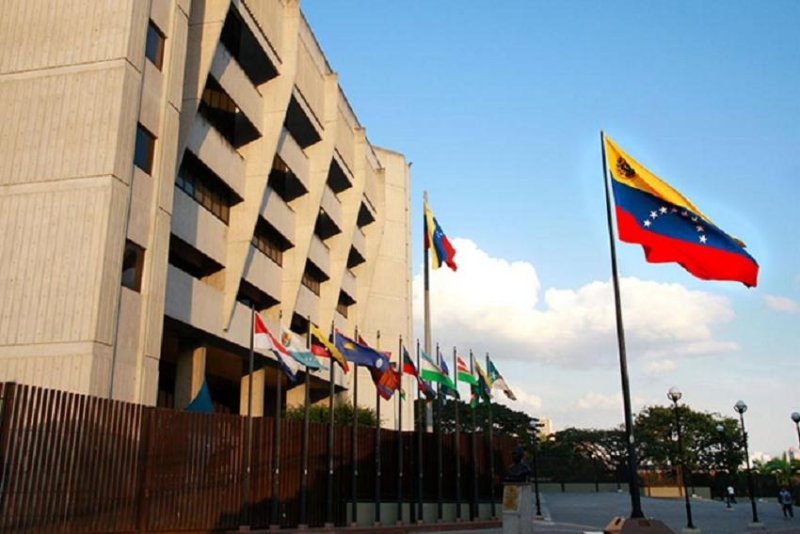Venezuela's top court -- called the Supreme Tribunal of Justice -- on Monday declared unconstitutional an amnesty bill that would have freed up to 110 people considered by the opposition as political prisoners. The United Nations said the decision was disappointing. Photo courtesy of Supreme Tribunal of Justice
CARACAS, Venezuela, April 12 (UPI) -- Venezuela's highest court has ruled unconstitutional an amnesty bill passed by the opposition-controlled National Assembly in a move backing President Nicolas Maduro.
The court -- called the Supreme Tribunal of Justice -- said the amnesty bill was unconstitutional because it shielded offenses "that are acts of organized crime, which are not related to crimes of a political nature."
The bill would have freed up to 110 people the opposition considers political prisoners but the ruling government of Maduro largely calls "criminals and terrorists." Last week, Maduro called on the court to declare the "criminal" bill unconstitutional -- further intensifying allegations the court is stacked to carry out the wishes of Maduro's ruling United Socialist Party of Venezuela, or PSUV.
"Alert: Venezuelan dictatorship declares unconstitutional Amnesty Law. It has become clear where they are going and what we need to do to avoid it," Venezuelan opposition leader María Corina Machado said in a statement, hinting at an upcoming recall referendum that would ask voters if Maduro should be removed from office.
The Office of the United Nations High Commissioner for Human Rights on Tuesday said it was "surprised" by the court's decision, El Universal reported.
"We are very, very disappointed by the decision of the (Supreme Tribunal of Justice), especially considering that the Venezuelan government asked us our legal opinion and we said that was generally in accordance with human rights standards," OHCHR spokeswoman Ravina Shamdasani said in a Geneva press conference.
After the court's ruling, Maduro said he would set up a commission to investigate the cases of jailed opposition activists, adding that opposition members would be invited to join.
Shamdasani called for reforms in the court that would prevent it from becoming an arm of Maduro's administration.
"We and other human rights mechanisms of the U.N. have shown our concern about the independence of the Venezuelan judiciary repeatedly," Shamdasani said. "Last year, the Human Rights Committee stressed the need for a thorough reform of the judicial system to ensure its independence from the government and any political group."
Shamdasani said the amnesty bill was a it was a "huge movement towards dialogue and reconciliation."
"We are very disappointed by what happened," she added.















